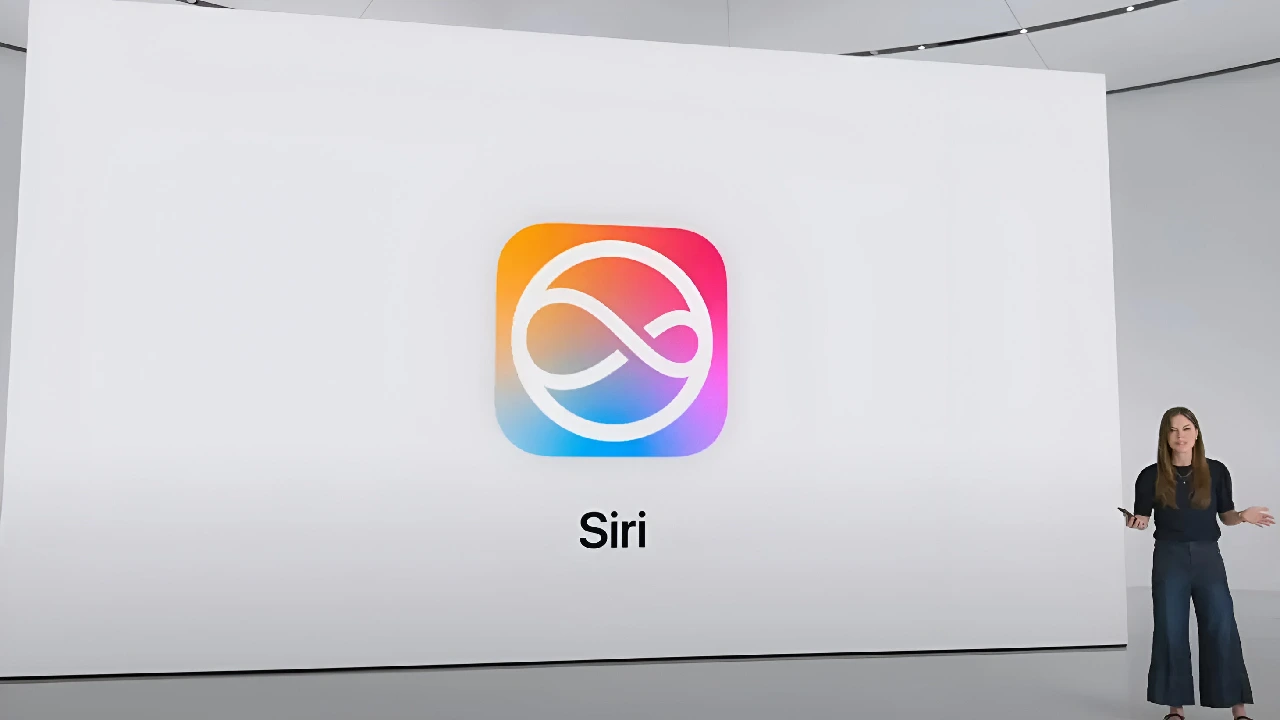Apple's Efforts To Improve Siri's AI Capabilities

Table of Contents
Enhanced Natural Language Processing (NLP) in Siri
One of the key areas where Apple has focused its efforts is improving Siri's Natural Language Processing (NLP). NLP is crucial for a virtual assistant to understand and respond appropriately to user requests. Significant advancements have been made in Siri's ability to comprehend context, nuances, and complex queries.
- Improved accuracy in understanding accents and dialects: Siri is now better equipped to understand a wider range of accents and dialects, making it more accessible to a global user base. This improvement involves training the NLP models on vast datasets representing diverse speech patterns.
- Better handling of ambiguous requests and follow-up questions: Siri can now handle more complex and ambiguous requests, clarifying uncertainties through follow-up questions and providing more accurate responses. This improved contextual understanding is a significant leap forward in conversational AI.
- Increased ability to understand colloquialisms and slang: Siri's NLP models are continuously updated to incorporate colloquialisms and slang, leading to more natural and engaging interactions. This makes Siri feel less robotic and more attuned to everyday language.
- Integration of advanced NLP techniques like deep learning and transformers: Apple leverages cutting-edge NLP techniques like deep learning and transformer models to improve Siri's understanding of language. These advanced techniques allow for more accurate and nuanced interpretation of user input.
These NLP improvements translate into a more natural and intuitive user experience. Users report higher satisfaction with Siri's responses, leading to increased engagement and reliance on the virtual assistant for various tasks, from setting reminders and sending messages to conducting complex searches and managing smart home devices.
On-Device Processing and Privacy
Apple has prioritized privacy in its approach to improving Siri's AI. A significant aspect of this strategy is a focus on on-device processing. This means that much of the processing power for Siri's functionality resides on the user's device rather than relying heavily on cloud servers.
- Reduced reliance on cloud processing for improved speed and privacy: By performing more processing locally, Siri is faster and more responsive. This also minimizes the amount of user data sent to Apple's servers, enhancing user privacy.
- Increased on-device machine learning model capabilities: Apple continuously improves the machine learning models running on its devices, allowing for more sophisticated AI functions to be performed locally without compromising speed or privacy.
- Discussion of differential privacy techniques used to protect user data: Apple employs differential privacy techniques to further protect user data. These techniques add noise to the data, making it difficult to identify individual users while still allowing for valuable aggregate data analysis to improve Siri’s performance.
The advantages of on-device processing are substantial. Faster response times, improved responsiveness, and enhanced user privacy are key differentiators compared to competitors who heavily rely on cloud-based processing, potentially sacrificing user privacy for improved performance.
Integration with Other Apple Services and Devices
Siri's power is amplified through seamless integration with other Apple services and devices. This integration creates a cohesive and efficient user experience, placing Siri at the heart of the Apple ecosystem.
- Improved HomeKit integration for smart home control: Siri provides effortless control over smart home devices through HomeKit integration. Users can manage lighting, temperature, and other smart home functionalities using simple voice commands.
- Seamless interaction with Apple Music, Podcasts, and other apps: Siri seamlessly integrates with Apple Music, Podcasts, and other apps, allowing for hands-free control and effortless access to content.
- Enhanced functionality with Apple Watch, AirPods, and other devices: Siri's functionality extends to other Apple devices like the Apple Watch and AirPods, providing consistent access to its capabilities regardless of the device in use.
- Better integration with the Apple ecosystem overall (iCloud, etc.): Siri's tight integration with iCloud and other Apple services allows for a personalized and consistent experience across all devices.
This interconnectedness creates a more efficient and user-friendly experience. Siri acts as a central hub, connecting various aspects of the Apple ecosystem to create a seamless and intuitive user experience.
Machine Learning Advancements and Ongoing Development
Apple's commitment to improving Siri’s AI capabilities is reflected in its continuous investment in machine learning and AI research. Ongoing development ensures Siri remains at the forefront of virtual assistant technology.
- Ongoing improvements to Siri's speech recognition technology: Apple continually refines Siri's speech recognition technology, making it more accurate and reliable across different accents, dialects, and noise levels.
- Development of new features and functionalities based on user feedback and data analysis: User feedback and data analysis play a crucial role in guiding the development of new features and functionalities for Siri. This ensures that the virtual assistant continues to evolve and meet user needs.
- Focus on personalization and adaptation to individual user preferences: Apple is focused on personalizing the Siri experience. This involves adapting to individual user preferences and providing tailored responses and suggestions.
- Potential future directions of Siri's AI development (e.g., multi-modal interaction): Future development of Siri's AI likely includes multi-modal interaction, allowing for a more natural and engaging interaction that integrates voice, text, and even visual inputs.
Apple's long-term commitment to Siri's AI is clear. Through ongoing research and development, they aim to create a virtual assistant that is not only highly functional but also deeply integrated into the user's life.
Conclusion
Apple's dedication to enhancing Siri's AI capabilities is evident through its ongoing investments in natural language processing, on-device processing, and integration with its ecosystem. By prioritizing user privacy and continually refining its machine learning models, Apple is striving to create a more intuitive, responsive, and personalized virtual assistant experience. The future of Siri looks promising, with continued advancements expected in areas like personalized recommendations and multi-modal interaction. Stay informed about the latest developments in Siri's AI capabilities and experience the evolving power of this intelligent assistant. Learn more about the latest Siri improvements and see how these advancements enhance your daily use of this powerful tool.

Featured Posts
-
 Saskatchewan Political Panel Examining Western Separation
May 21, 2025
Saskatchewan Political Panel Examining Western Separation
May 21, 2025 -
 Nyt Crossword April 25 2025 Answers And Clues
May 21, 2025
Nyt Crossword April 25 2025 Answers And Clues
May 21, 2025 -
 Aims Group Partners With World Trading Tournament Wtt
May 21, 2025
Aims Group Partners With World Trading Tournament Wtt
May 21, 2025 -
 Walliams And Cowells Fallout Celebrity Rift Deepens
May 21, 2025
Walliams And Cowells Fallout Celebrity Rift Deepens
May 21, 2025 -
 Abn Amro Analyse Van De Aex Prestatie Na Kwartaalcijfers
May 21, 2025
Abn Amro Analyse Van De Aex Prestatie Na Kwartaalcijfers
May 21, 2025
